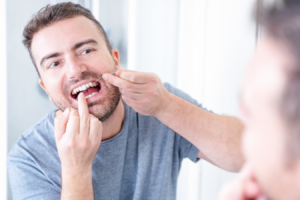More and more scientific studies show that lack of sleep can affect your health . Getting enough rest isn’t a whim for the body, but a necessity! If you struggle with sleep, remember that there are tips for sleeping better that work.
Still, millions of people around the world suffer from insomnia caused by a variety of factors, from medical conditions to stress. What to do when you can’t sleep? How to get a good night’s sleep?
We’ll tell you what causes sleep problems and what you can do to ensure you get the recommended amount of sleep and adopt healthy sleep habits. Check out these 6 tips for better sleep and easier sleep .
Top 6 Tips for a Better Night’s Sleep
1. Create a bedtime routine
If you’re stressed or struggling to sleep, create a routine that helps you relax. You can take a warm bath, spray your bedroom with lavender scent, or drink relaxing herbal teas. Just make sure they don’t contain caffeine, as this will stimulate your body!
One of the best tips for better sleep, according to experts, is to get your body used to a schedule . Force yourself to go to bed and wake up at the same time every day. This way, you won’t disrupt your circadian rhythms, thus promoting more restful sleep.
2. Prepare your bedroom for rest
Your environment can greatly affect your rest. Therefore, try to make some positive changes that promote restorative sleep. Temperature is a factor that impairs sleep quality, regardless of the number of hours you get.
Make sure to keep your bedroom temperature between 18°C and 21°C . Also, keep the space dim. Warm tones also promote better sleep.
3. Get a good mattress
It’s no use following some tips for better sleep if the mattress you sleep on isn’t the right one. Do you wake up and feel like your body hasn’t had a good night’s sleep? Choose the mattress that best suits your needs with these simple questions!
- What position do you sleep in? If you tend to sleep on your back, a firm mattress is preferable. However, if you sleep on your side, a less firm mattress will allow your shoulders to sink slightly to achieve a more back-friendly position.
- Do you tend to get hot at night? If so, opt for a spring mattress, as its structure will facilitate ventilation. On the other hand, for people who tend to feel cold, a foam, memory foam, or latex mattress will help retain heat better.
- Do you have dust mites or dust mite allergies? Make sure you get a mattress with an anti-mite treatment. Memory foam mattresses, in particular, are more resistant to bacteria and viruses than latex or spring mattresses.
- Do you move around at night? If so, opt for one with a high foam density. The best-selling ones usually range from 30 to 40 kg/m3.
- Do you have back problems? A memory foam mattress can improve your posture at night. Thanks to its memory foam effect, it adapts to your weight and back shape!
And, of course, try the mattress before you buy it! There’s nothing like lying on a display mattress to see if the mattress is right for you.
4. Get organized during the day
Some daytime activities can interfere with healthy sleep. Try to stop drinking caffeine after 6 p.m. Changing beds won’t help you fall asleep either. Avoid sleeping away from home for work or personal reasons.
Natural light also promotes relaxation. A walk after work or a morning run will allow you to soak up the sunlight throughout the day.
5. Make sure you adopt a healthy posture to sleep better
Other tips for better sleep are based on body posture. Your position can affect the quality of your sleep. Some popular positions, such as sleeping on your stomach, are surprisingly bad for your body.
Choose to sleep on your back. This way, you’ll support your spine and prevent acid reflux. If you suffer from sleep apnea or snoring, it’s best to sleep on your side to improve the quality of your sleep.
6. Rule out a sleep disorder
Suffering from stress is one of the most common causes of insomnia. Keeping a journal where you record the problems you’re experiencing can also help you identify the source of your anxiety.
If the problem persists after exhausting all options, it’s important to seek medical advice from a specialist. Stress can end up chronically affecting your health. Consult a doctor to see if there may be an underlying medical cause.
What causes sleep problems and insomnia?
Numerous causes can lead to sleep problems, including insomnia. The most common include:
- Consumption habits such as drinking too much caffeine, consuming alcohol, or eating unhealthy foods.
- An uncomfortable sleeping environment. Noise, light, or temperature changes will make it difficult for you to fall asleep.
- Stress or anxiety.
- Pain and health problems, such as heartburn, anxiety, or depression.
- Too much stimulation before bedtime. Watching TV, for example, or using a cell phone reactivates the brain. Turn off devices several hours before bedtime. If you still want to sit in front of a screen, make sure it emits yellow light instead of blue.
What to do when you can’t sleep?
Sometimes, the mere fact of not being able to sleep increases anxiety even more. It’s easy to end up in a cycle where sleep problems generate more insomnia.
If you have trouble falling asleep, it’s best not to force yourself to sleep. After 20 minutes, get out of bed and go to another part of the house where you can break that feeling. You could even open a book or do a relaxing activity. Otherwise, your bed will end up becoming a place that causes you stress!
How do sleep problems affect your rest?
Getting a good night’s sleep is key to helping your body recover and rest. Sleep problems can have a huge negative impact on all aspects of our lives, both short- and long-term.
Irritability or sudden mood swings are common. In addition, not getting enough sleep can make it difficult to learn and concentrate at work.
Remember that lack of sleep also has consequences for your immune system. It can be the cause of some illnesses. Insomnia is linked to depression, weight gain, premature aging, and a decreased sex drive, among other problems.
That’s why it’s so important to get medical checkups when appropriate. Find out how often you should get a checkup based on your age!
What to do to get a good night’s sleep if you can’t sleep
Review your diet
Not getting enough sleep increases appetite and also increases insulin resistance, which leads to a higher risk of diabetes in adults.
Remember not to go to bed hungry. But don’t do it right after eating either! Try to eat dinner two hours before bedtime to give your body time to digest.
Avoid heavy and fatty meals. Try eating something lighter, like a salad or meats like chicken or turkey. If you get hungry right after bed, quell it with yogurt or a little warm milk.
Avoid naps
Among the tips for better sleep recommended by experts is avoiding daytime naps. They will disrupt your sleep habits, making it harder for you to fall asleep at night.
If you feel particularly tired one day, you can take a short nap. Try not to keep it to more than 30 minutes.
Exercise and physical activity
Among those who suffer from insomnia, the same feeling is common: ” I want to sleep, but I can’t .” Exercise and physical activity are very good tips for sleeping well.
Opt for aerobic exercises , which will help burn more energy, such as running, cycling, or swimming. If you have to stay home to take care of your children, try some exercises to do at home with the little ones!
Relaxation practices
Tips for sleeping better are closely related to your mood. Try some relaxation techniques like mindfulness exercises.
Certain disciplines like yoga or Pilates can also help you find inner peace and alleviate some symptoms of fatigue. Plus, you can tone your body and improve your joints at the same time!
Music
It’s recommended that you keep your bedroom quiet. However, some people find that music helps them fall asleep and relax. Opt for soft, low-volume tunes.
Marconi Union, in collaboration with the British Academy of Sound Therapy, created a song called Weightless. It’s designed to reduce cortisol levels and lower heart rate and blood pressure. Feel free to relax to it when you’re stuck for sleep!
Conclusions on tips for better sleep
Everyone experiences stressful or worrying situations that interfere with their sleep routine. It shouldn’t surprise you! However, it’s important to be able to properly control or manage these situations.
If you find that you have trouble sleeping or falling asleep and the tips for better sleep aren’t working for you, you need to put a stop to it!





















+ There are no comments
Add yours